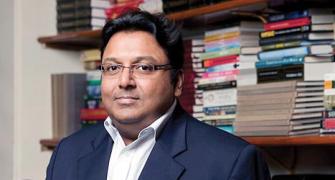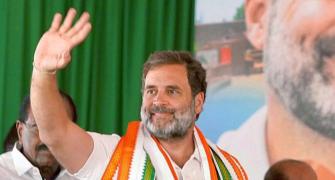 As the talent playing field gets more and more competitive, it will become more challenging to attract and retain high-potential people.
As the talent playing field gets more and more competitive, it will become more challenging to attract and retain high-potential people.
The dynamic and volatile business environment requires employers to equip their people with the right skills to stay ahead of the curve and drive change rather than react to change.
It is critical for organisations to start building a strong leadership pipeline to fuel growth and insulate the organisation against the uncertainties of the future.
Hence, today's HR teams play the role of strategic partners for future growth.
The key to successful business is talent acquisition, their management and most importantly talent development.
The journey starts with being able to mobilise talent around business objectives.
This is far more critical today than it has been ever before: it is important to articulate the vision of the organisation and then communicate with impact and empathy as this can help create optimism, clarity and certainty within the organisation and externally.
As the business environment becomes increasingly global, cross-cultural and networked, the HR teams will need to find ways to inspire a company's talent using creative and collaborative methods. This is over and above the multiple initiatives already existing to attract and build talent.
As the talent playing field gets more and more competitive, it will become more challenging to attract and retain high-potential people. It is important to recognise that in addition to tangibles like compensation, and benefits like being able to choose which department or location an employee gets to work, today's generation is also taking a close look at intangibles such as flexibility in the workplace, development opportunities, autonomy, and an appreciation for diversity.
It is this competitive quest for high-potential talent that is redefining how organisations look at their people assets and how they can best harness the power of that talent to pursue growth opportunities. It is in understanding how to do more than 'grow your own timber', that you can pave the way forward for the company to create a balanced work culture.
As companies embrace globalisation of talent, we see that frameworks to develop talent are cohesive and aligned across geographies, with the flexibility to customise and implement the framework as per local needs.
This combination of alignment and flexibility is important to build an internal pipeline that meets the needs of the organisation at large and not just the immediate job profile. Talent-rich organisations do more than just look at individuals; they also look at cadres of talent at different levels.
They want to be assured that they have a pool of employees with great potential and experience, people who aim to aggressively raise their performance bar higher.
From these employees, the company then selects top talent that can be groomed to be the organisation's leader or leaders of specialist functions within the organisation. Needless to say, it is important to spot top talent early. Among the existing processes available to do this, the nine-box-grid is popular as this helps in understanding employee strengths and development needs. This is the culmination of a larger talent management process in which leaders' identify organisational needs and critical job roles and capabilities.
These perspectives provide a balanced view of an employee's skills and growth areas. The grid can also be used as a planning tool by a manager.
Proactive leaders use the outcome of a talent review to initiate development discussions and implementation plans.
Depending on an employee's learning agility and performance, the manager can plot the talent on this nine-box grid. A company's approach to talent is, therefore, a core component of its overall strategy.
Yet too often, there seems to be a disconnect between how companies define their strategy and how they shape and invest in their workforce.
The next step forward would be taken when the HR develops a focused people strategy that aligns with and supports the foundation of the company's success and values.
HR needs to construct a defined plan on what kind of talent it needs - both for the present and for the future.
The organisation should be able to create and maintain HR systems that help it attract, select, deploy, develop, reward and retain this talent.
Finally, it is not just what the talent will do but how it will perform the job that it is assigned.
This goes a long way in creating an ethical organisation culture that in turn helps attract talent.
To sum up, I would quote Stephen King, "Talent is never static. It's always growing or dying". Reflect on this statement and create an organisation that is able to keep up with the changing world - and while doing that, achieve sustained growth.
(Arun Sehgal is the executive vice-president, HR, GSK Consumer Healthcare)










